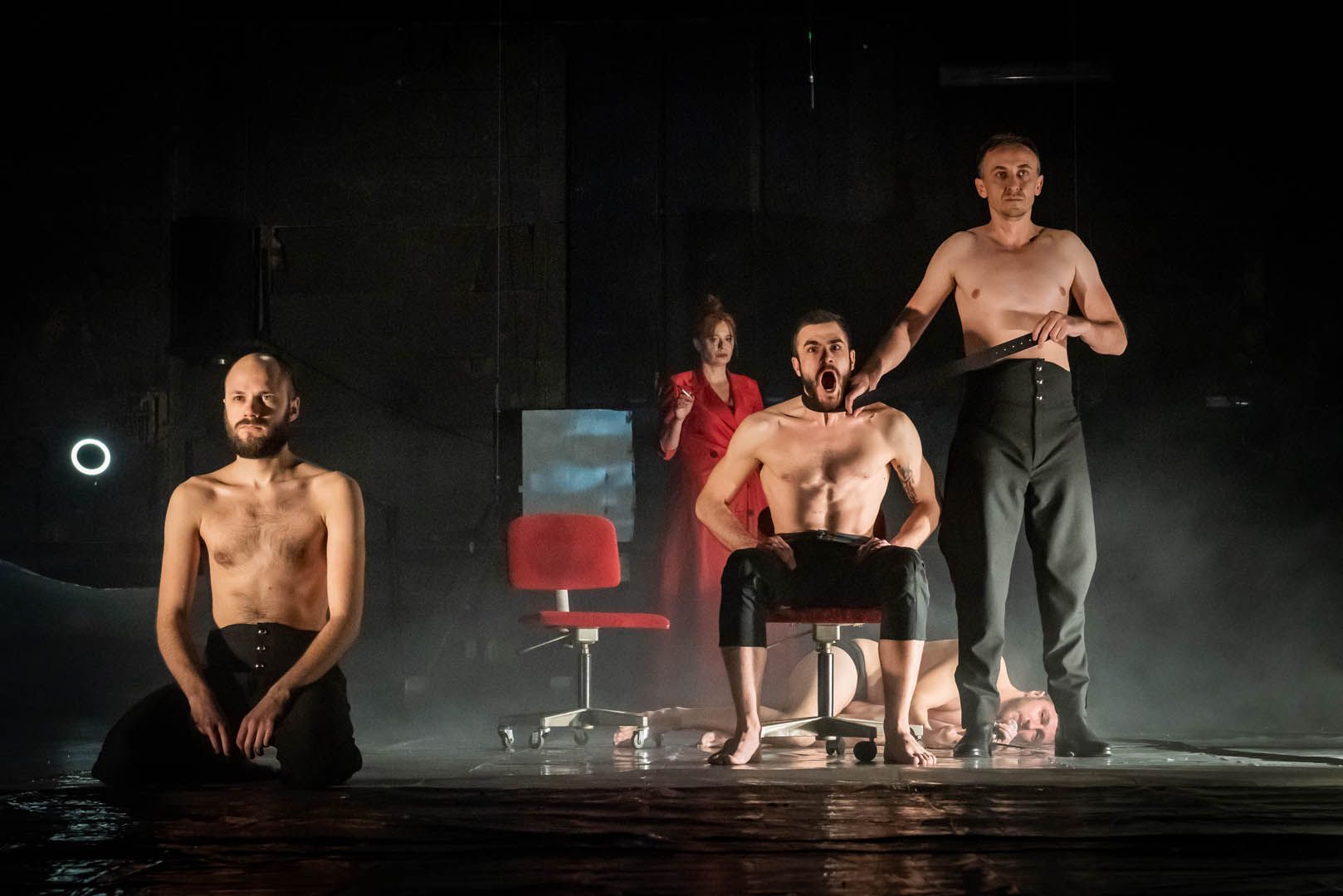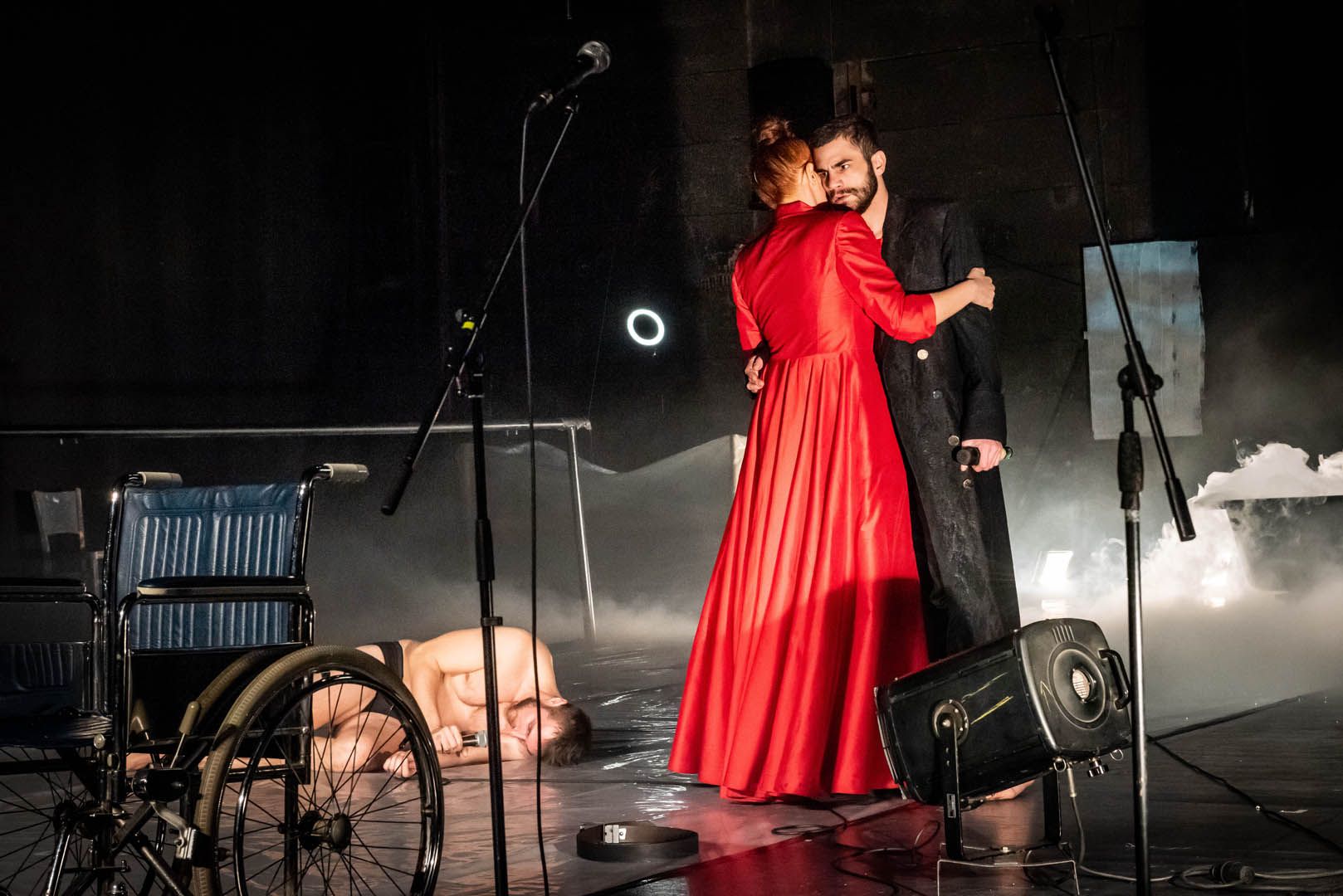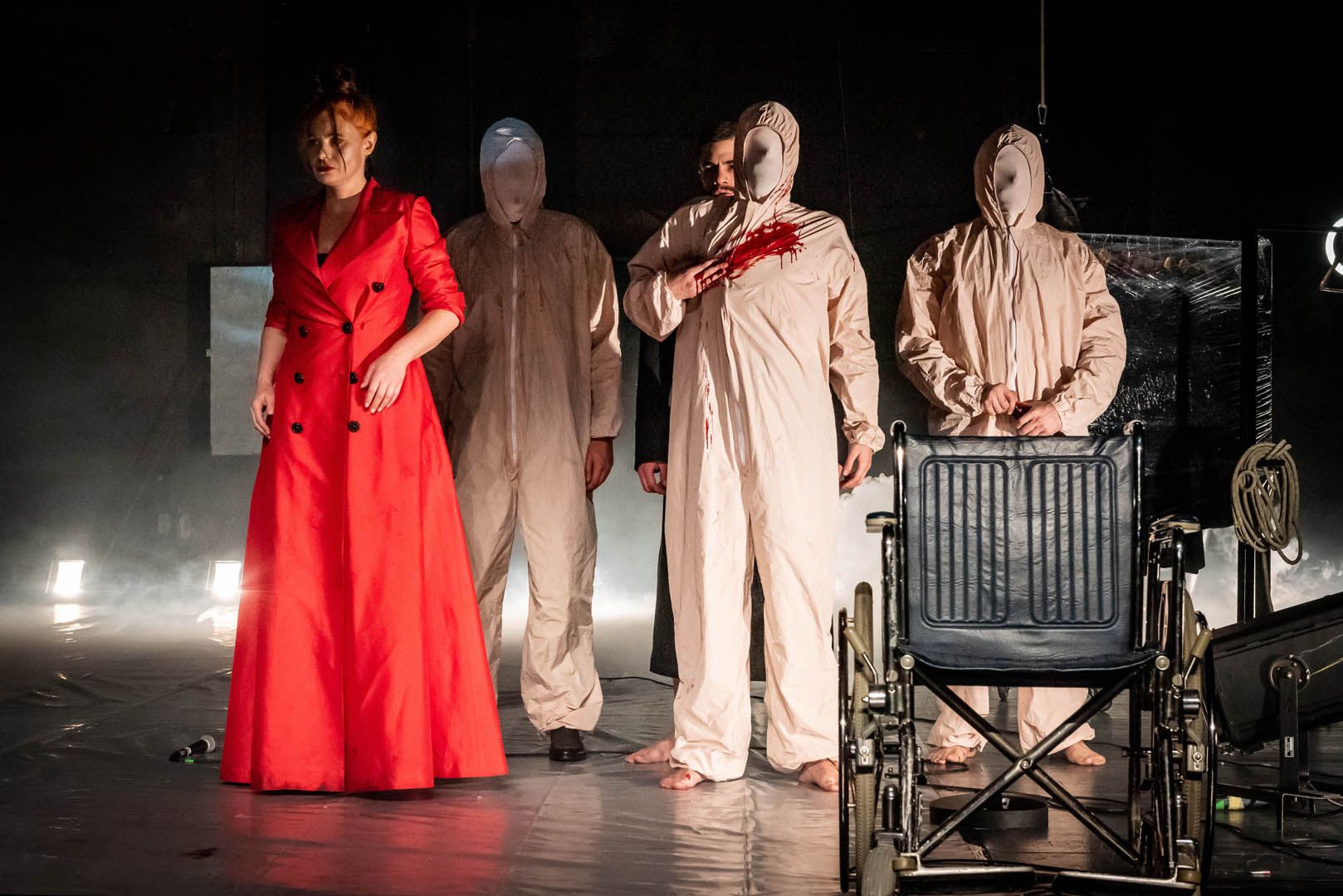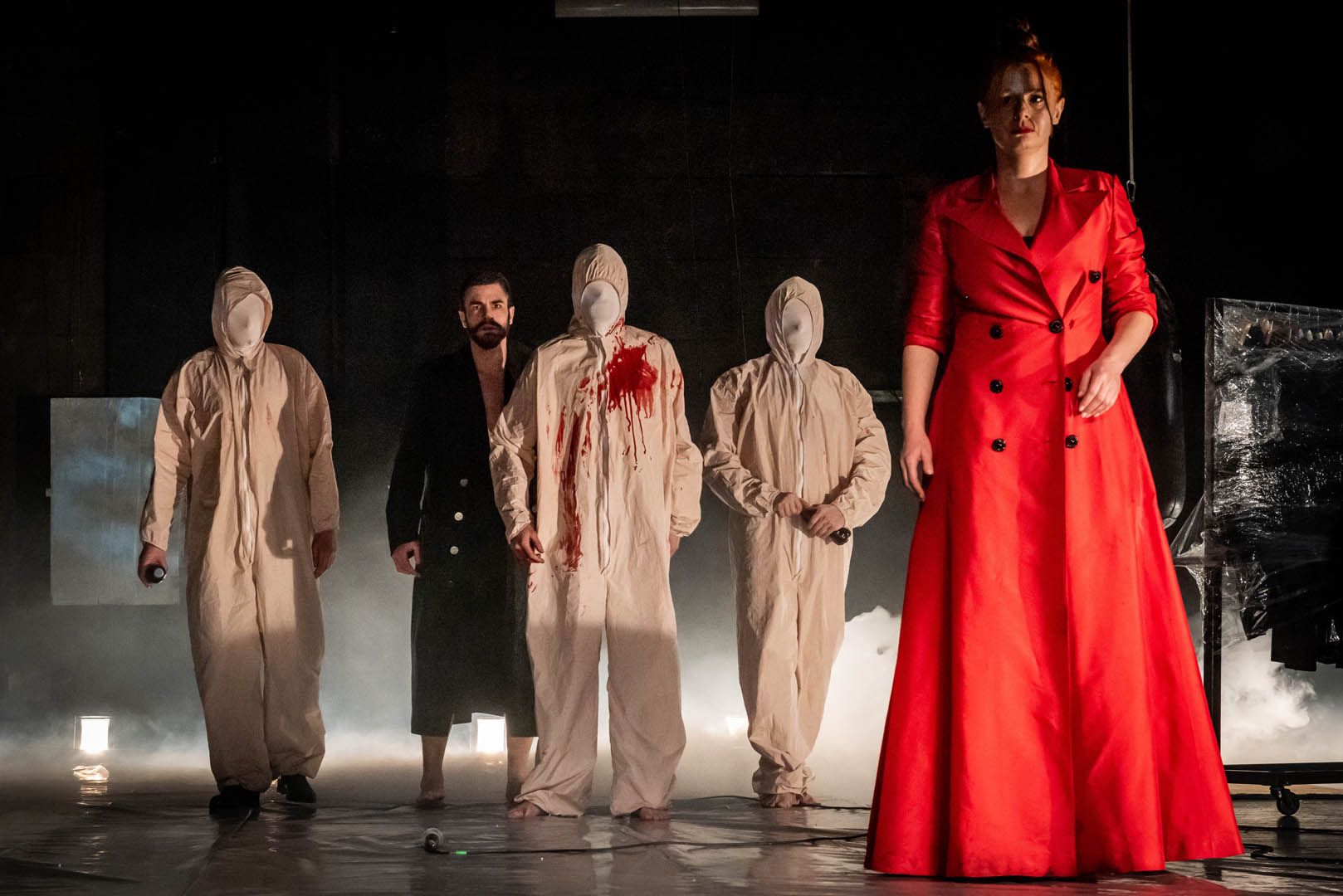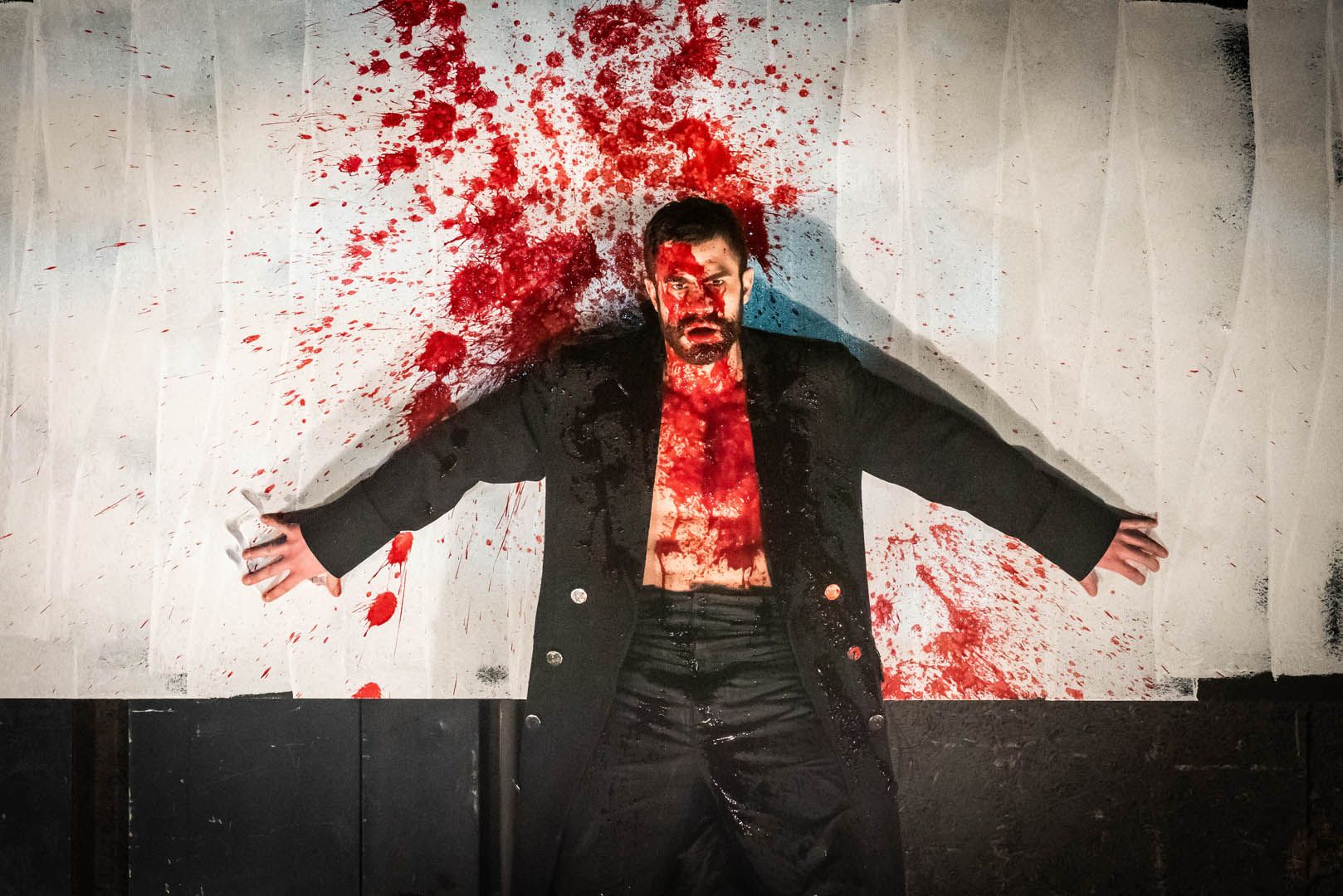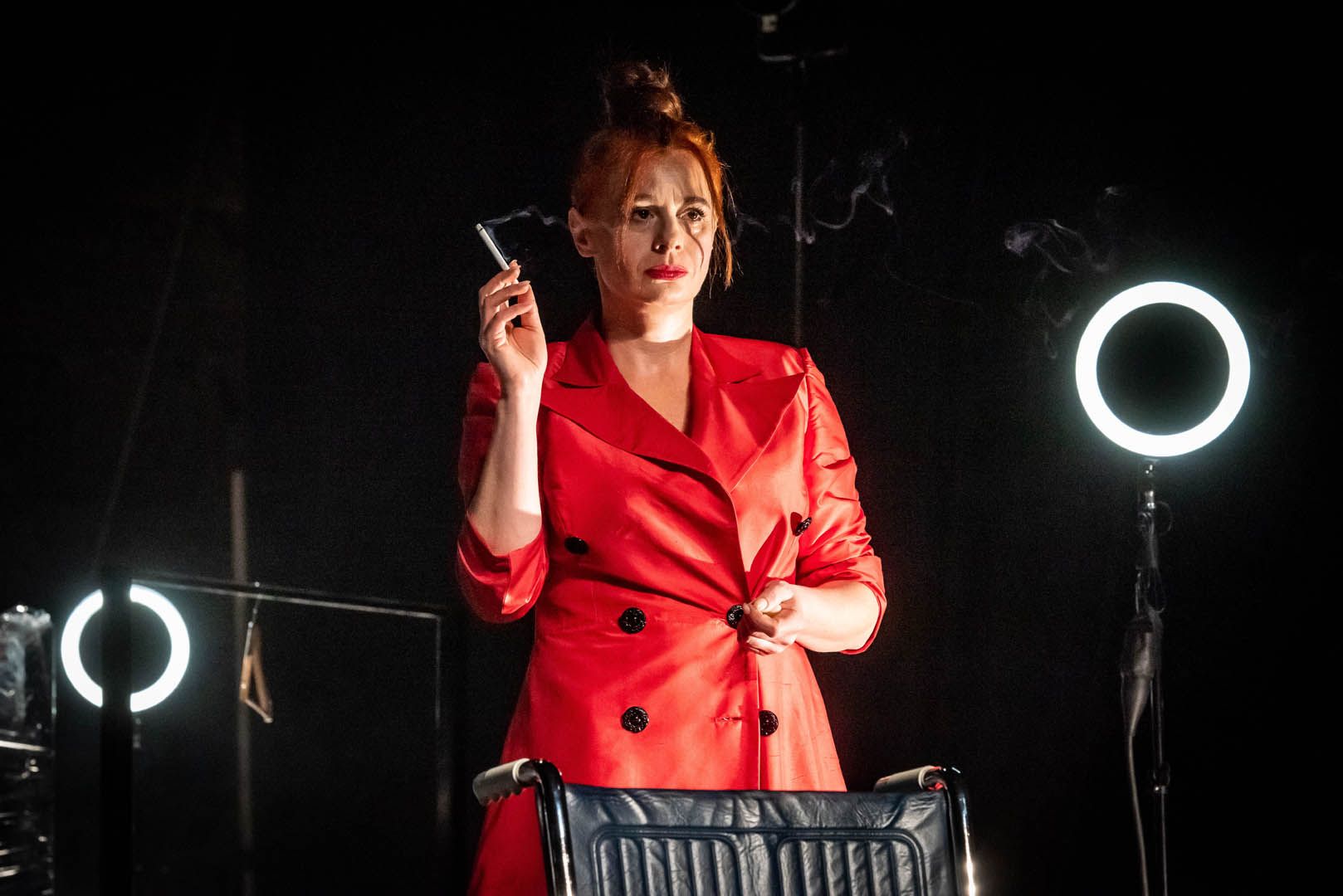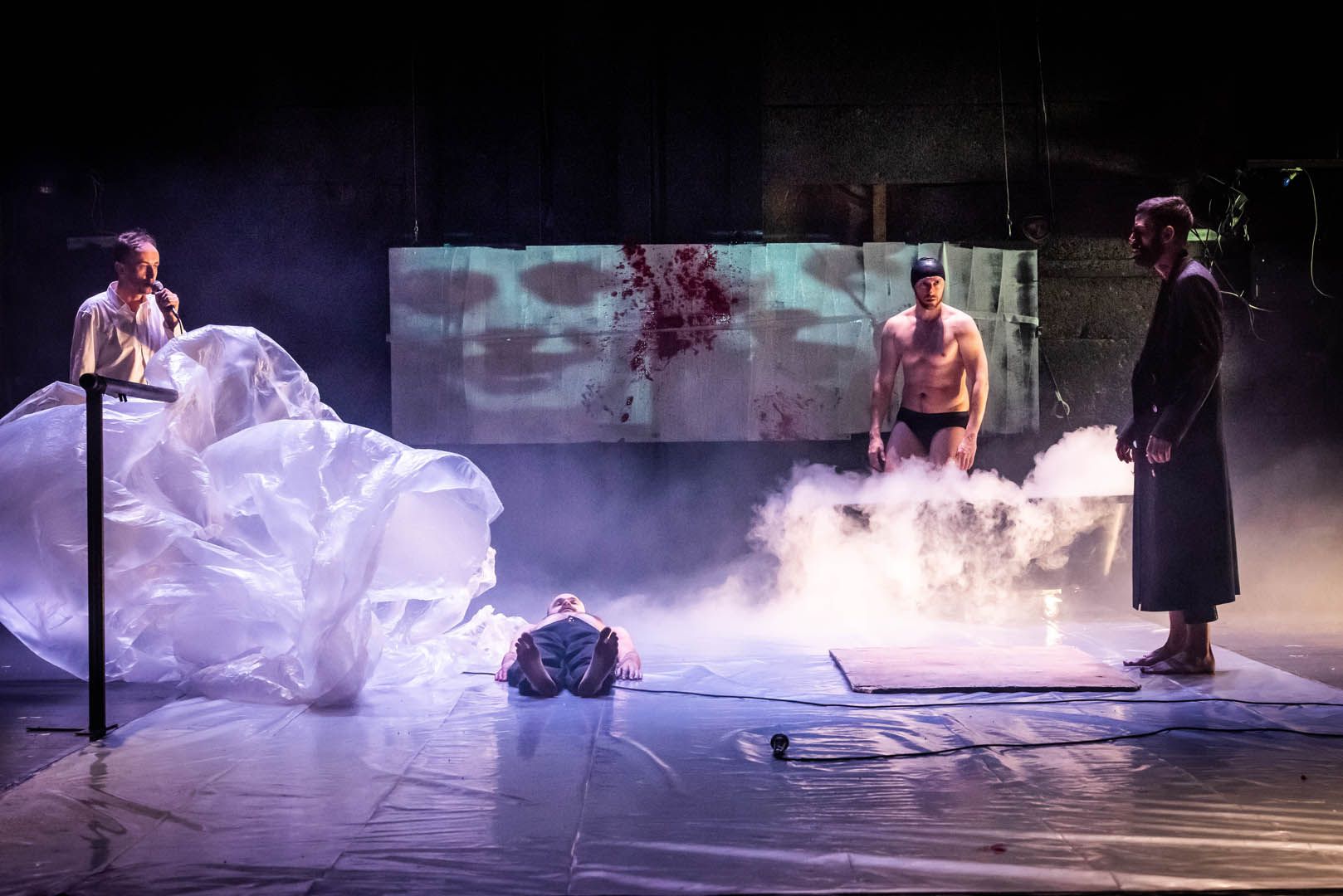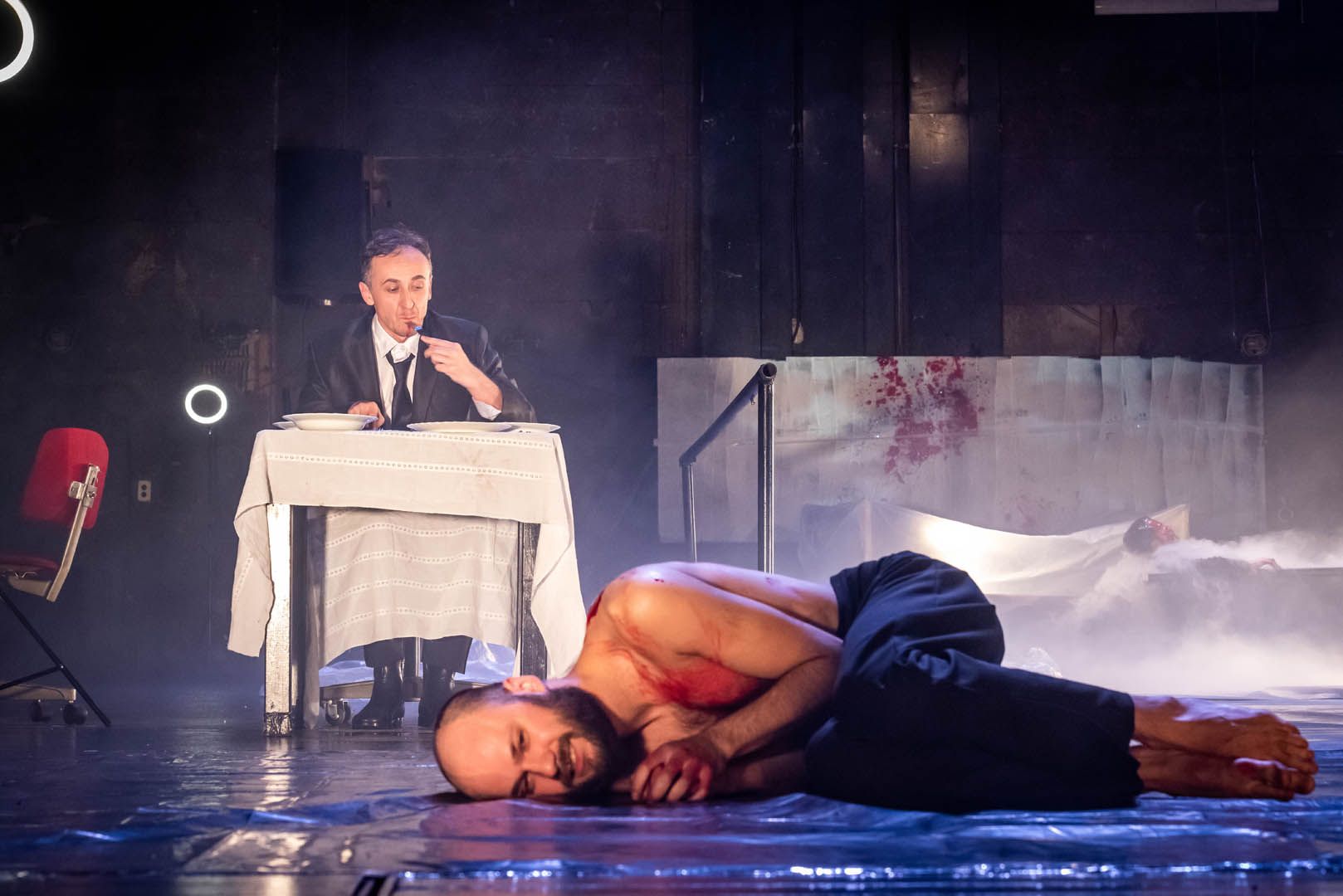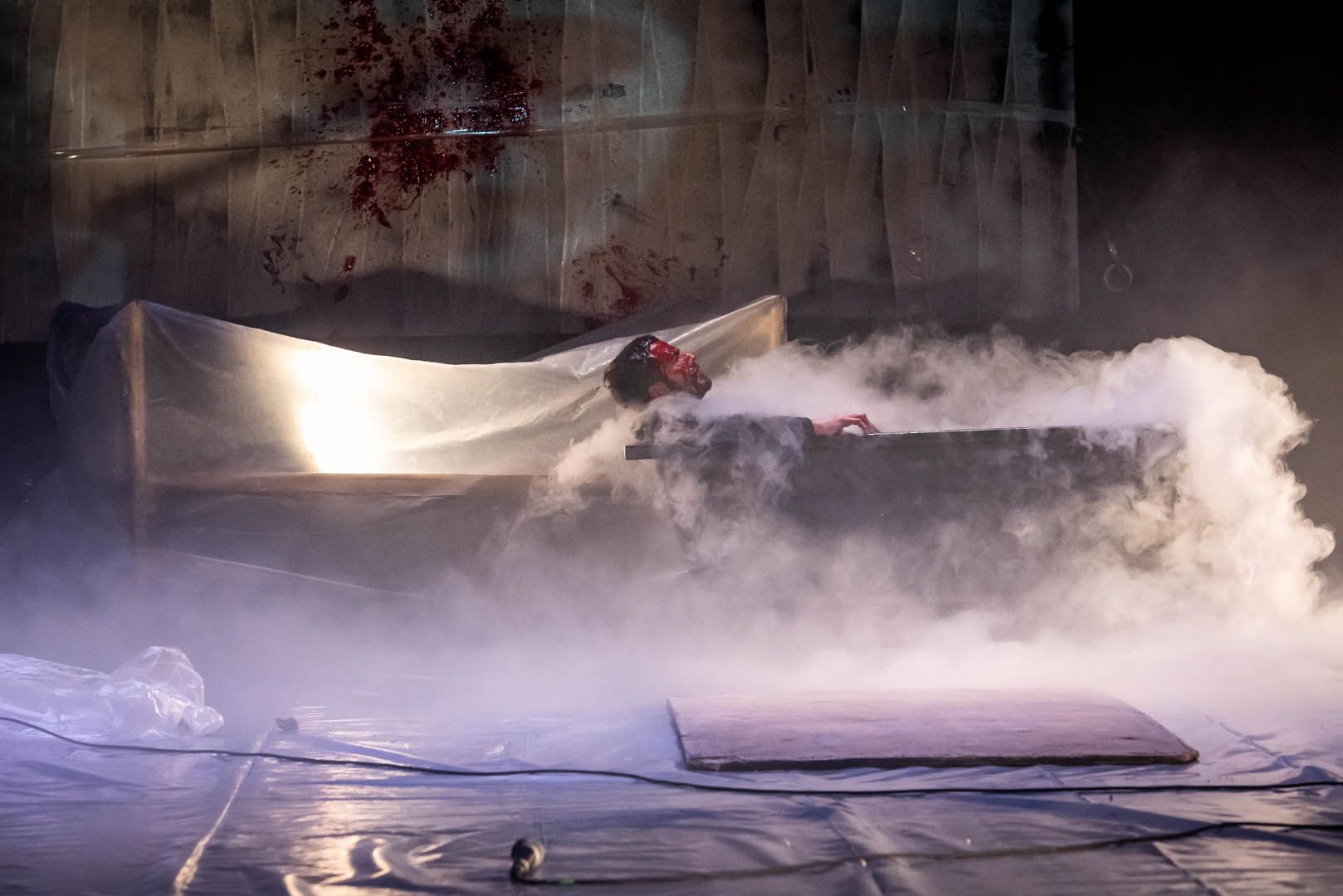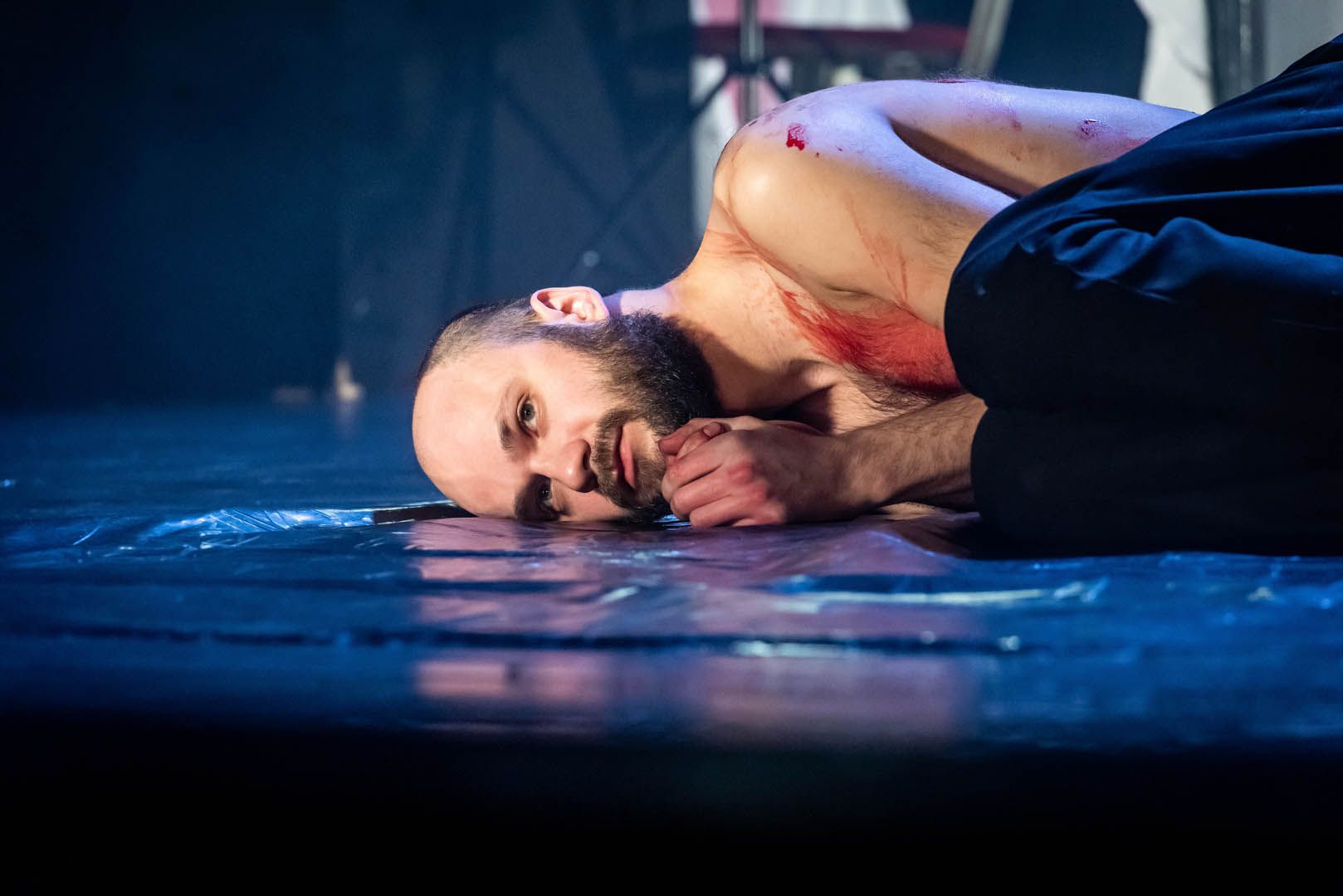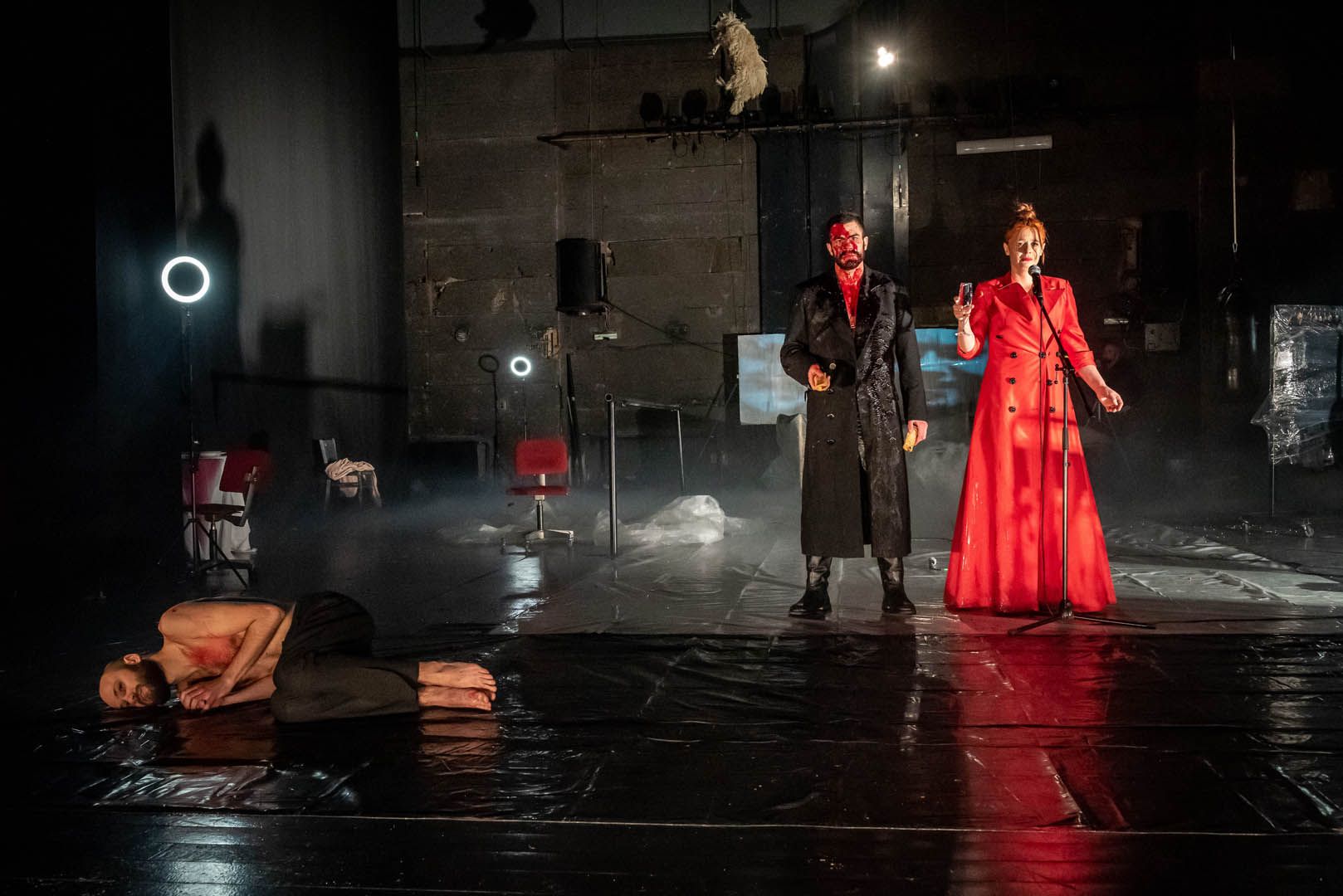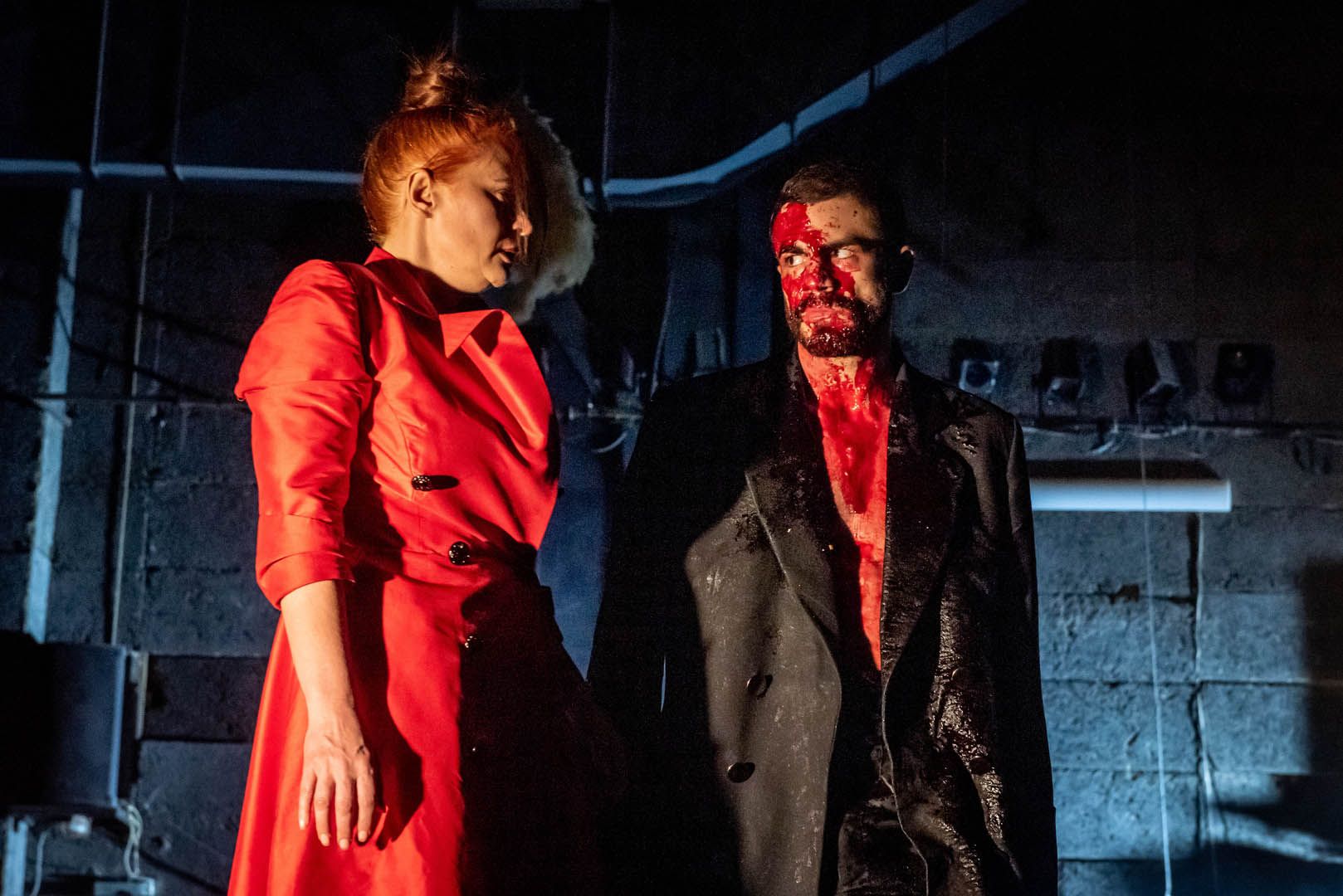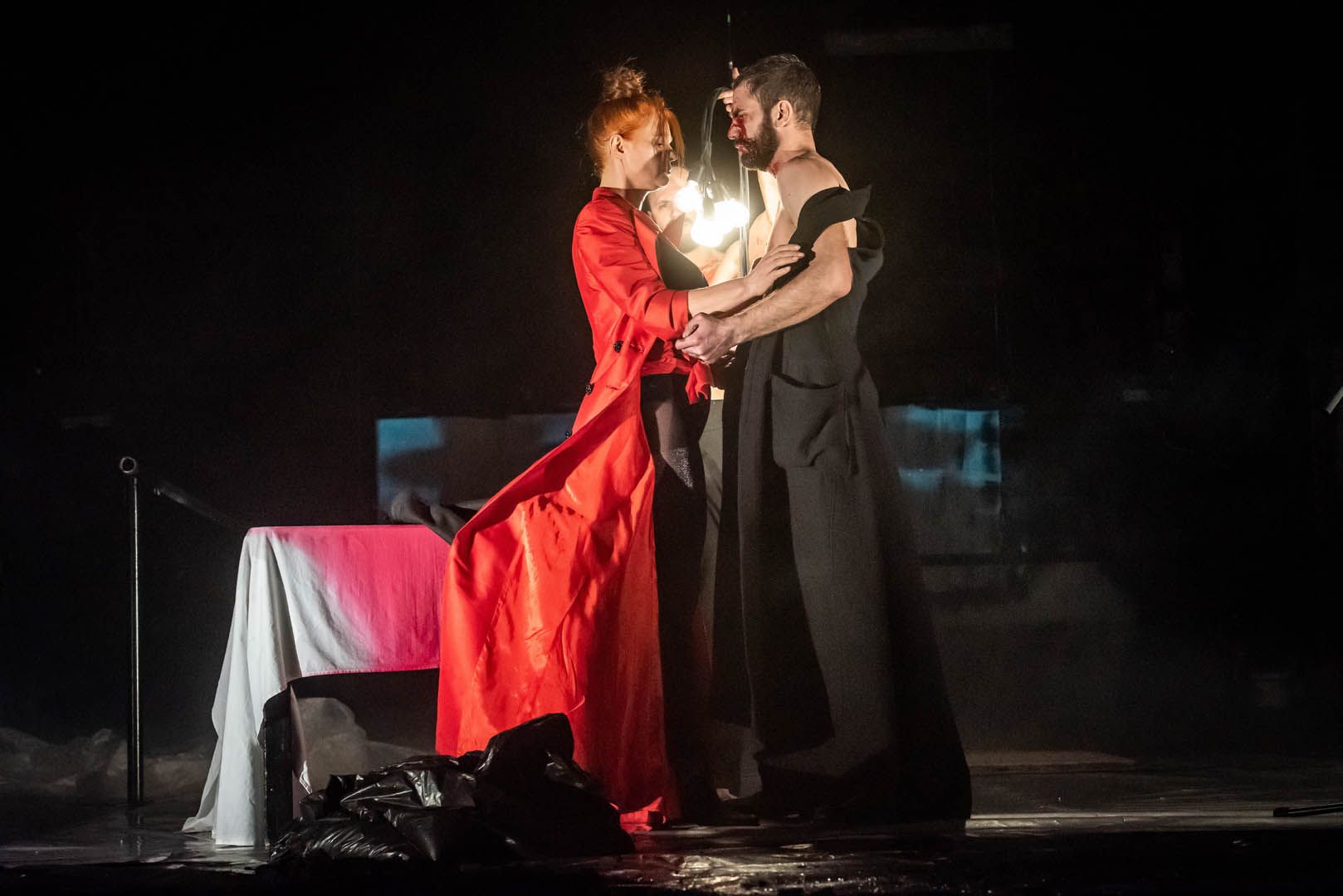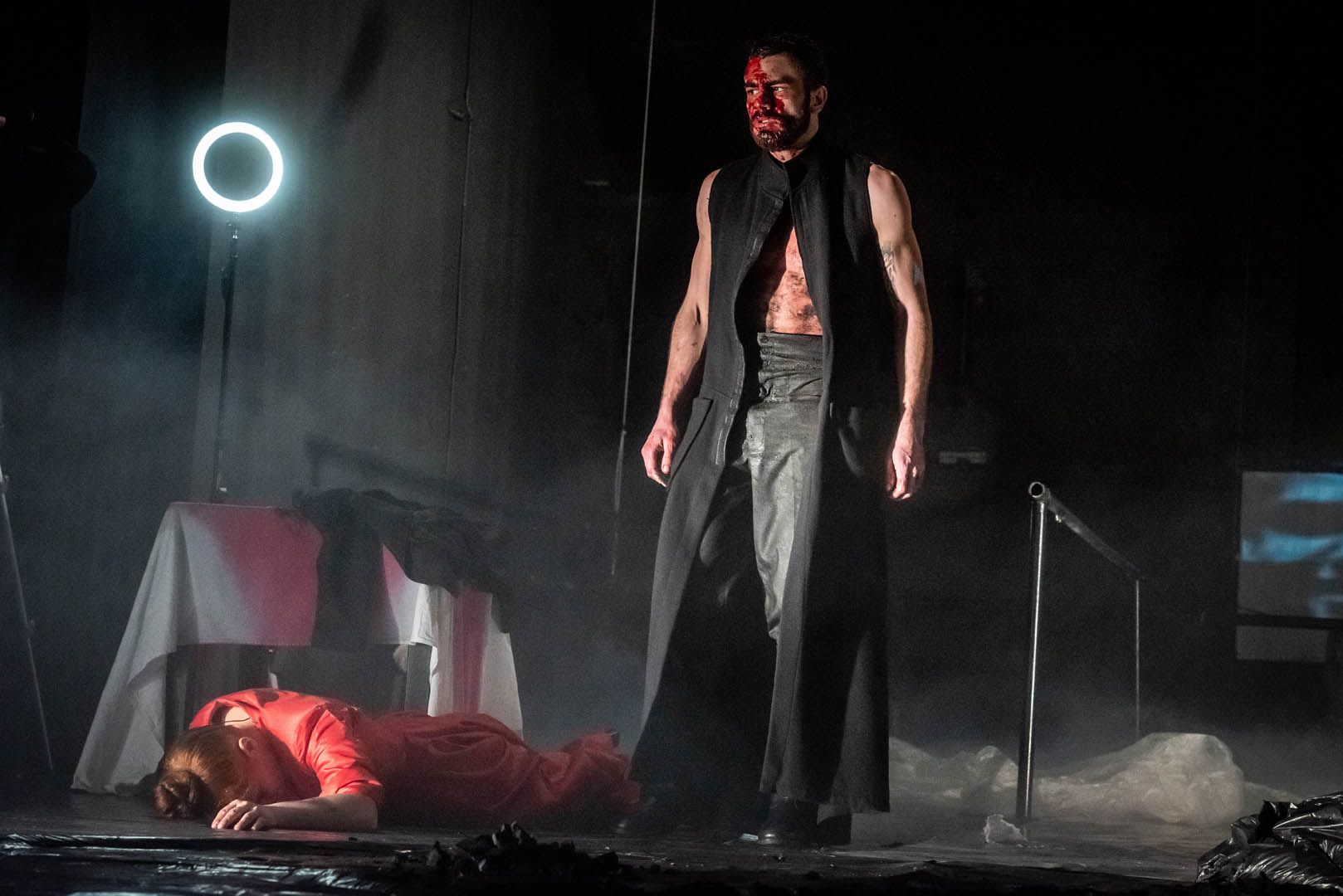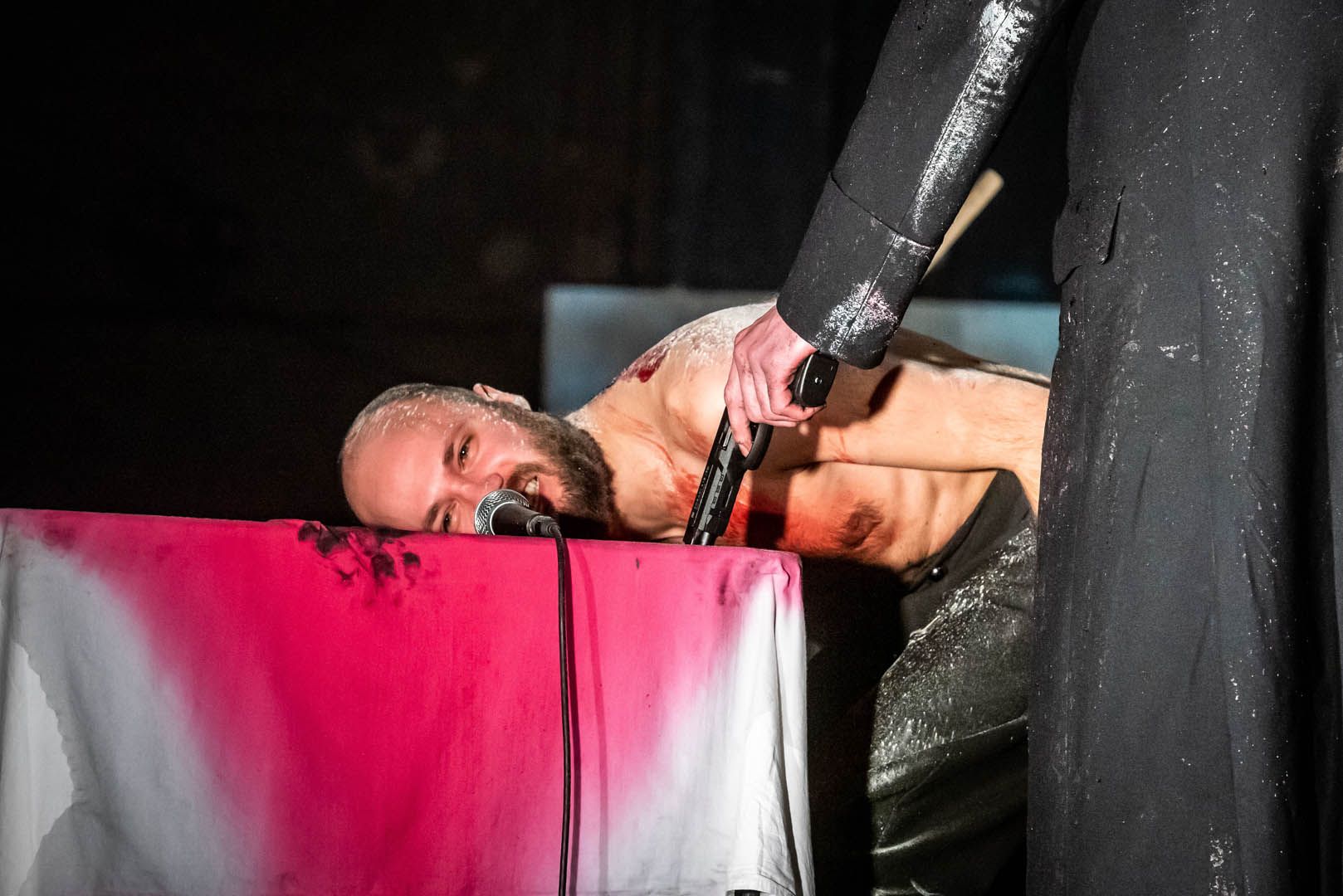OEDIPUS THE KING by Sophocles
- Wednesday, July 6Paphos Ancient Odeon
- Friday, July 8Makarios III Amphitheatre
- Performances start at:21:00Please arrive at the theatre before 20:15
- Duration:
65 minutes
The Sarajevo National Theatre and the MESS International Theatre Festival present Sophocles’ Oedipus the King, perhaps the most emblematic ancient Greek drama, directed by the distinguished Slovenian theatre director Diego de Brea.
The city of Thebes has been struck by plague, the citizens are dying, and no one knows how to put an end to it. King Oedipus wants to know why this is the case and he requests the advice of the oracle at Delphi. The oracle predicts that Thebes will be saved as soon as the person responsible for the death of King Laius is found and banished from the city. The king decides to solve the mystery, thus setting in motion a series of horrific revelations. The old prophesy has come to pass. However much Oedipus tried to avoid his fate, his every action led him towards it. The only way open to him now is exile.
Sophocles’ tragedy focuses on the individual in relation to their personal freedom, power, society and divine will. Diego de Brea’s directing approach conveys all the coldness, hardship, brutality and evil that emanate from people just like from Pandora’s Box. Always new, unexpected and more brutal than the one before; because misfortunes never come singly.
WITH GREEK AND ENGLISH SURTITLES
- SUITABLE FOR AGES 17+
- Translation:
Bratoljub Klaić
- Adaptation/Direction/Set design:
Diego de Brea
- Dramaturgy:
Džejna Hodžić
- Costume design:
Blagoj Micevski
- Lighting design:
Moamer Šaković
- Sound design:
Danko Bevanda
Cast:
- Oedipus:
Dino Bajrović
- Jokasta:
Mediha Musliović
- Creon/Herdsman:
Damir Čobo
- Tiresias:
Izudin Bajrović
- Priest/Chiorman/Herdsman:
Damir Mašić
- Messenger:
Emir Fejzić
DRAMATURGE’S NOTE
Oedipus the King is a Greek tragedy by one of the three great Greek tragedians, Sophocles, in which the tragic hero Oedipus attempts to flee the fate the gods have laid out before him and avoid the evil that shall befall on him.
Unaware of his origins as an adopted son and not the son of his parents, he unknowingly places himself upon a path that will lead to the prophecy coming true: Oedipus murders his father, takes his mother as his own wife and fathers children with her.
All this happened before the play even began and the tragedy unfolds with the revelation of the truth.
The plague is ravaging Thebes and the reason for this is an evil that happened many years ago. Oedipus, who has already once saved the city by solving the Sphinx riddle, launches an investigation and tries to solve the problem. The hunter becomes the prey. He realizes that he is to be blamed for all the evil because he killed his own father and married his own mother. And now as a punishment for this atrocity, the city is plagued.
At first glance, we cannot identify with this situation nowadays, as fortunately incestuous relationships are rare. However, this dramatic text communicates with the present time in such a way that for everything that is happening to us now we must look for its cause in our past. At this moment the world is plagued by corona virus –and we are like Oedipus trying to understand how and where this evil has come from. Every action has a reaction and we have produced all the evil ourselves, consciously or unconsciously. Now, nature takes vengeance for the pollution and the destruction caused by physical actions as well as our greed, malice and hatred. The world is more polluted than ever and to solve these problems, we must go far back in time to find the causes of our misery. Or, to be more precise, we have not yet launched an investigation and set out to solve problems. We are still, as the character of the blind prophet Tiresias says: “Blind, though we have sight”.
Through this mythical story, Diego de Brea, in his own way, conveys with his directing means all the coldness, hardship, brutality and evil that emanate from people just like from Pandora’s Box. Always new, unexpected and more brutal than the one before; because misfortunes never come singly.
Džejna Hodžić
SARAJEVO NATIONAL THEATRE
The National Theatre of Sarajevo is the most prominent theatre house in Bosnia and Herzegovina (BiH). It offers drama, opera and ballet performances and also houses the Sarajevo Philharmonic Orchestra. This large and beautiful building on Obala Kulina Bana is not only home to the theatre but is also listed as a Protected National Monument of BiH. It was designed by architect Karl Paržik and built during the Austro-Hungarian period and it originally served as a social facility which officially opened on January 2, 1899. With the founding of the National Theatre on November 17, 1919, the building underwent a thorough reconstruction and the first performances were staged here in this building on Obala Kulina Bana in October 1921. The famous Serbian playwright, Branislav Nušič, served as one of the theatre’s first directors. Up until the time immediately following the Second World War, the National Theatre worked exclusively as a theatre, but then it formed its own opera and ballet ensembles in 1946. 100 years since the National Theatre was founded in Sarajevo, more than 1,000 plays have been staged here and a few hundred opera and ballet performances. The National Theatre ensembles have made numerous guest appearances and received many national and international awards, including the greatest recognition offered by the City of Sarajevo, the April 6th Award, on three separate occasions.
This year, the Sarajevo National Theatre is celebrating its 100th anniversary and is presenting numerous drama, opera and ballet performances.MESS INTERNATIONAL THEATRE FESTIVAL
The MESS International Theatre Festival was founded in 1960 under the name “The Festival of Small and Experimental Stages of Yugoslavia” which gave it the widely known acronym MESS. The Festival was established upon the initiative of Jurislav Korenić, and is one of the oldest festivals in East and Southeast Europe.
MESS was stopped when the war broke out in Bosnia and Herzegovina. The Festival’s administration, led by one of the most distinctive theatre directors of Bosnia and Herzegovina, Haris Pašović, renamed the festival into the International Theatre and Film Festival MESS Sarajevo and launched a cultural resistance against the siege in Sarajevo. The International Theatre and Film Festival MESS organized the first film festival in the besieged Sarajevo in 1993, “After the end of the world”, which was the predecessor of today’s Sarajevo Film Festival. At that time MESS produced performances by local artists, but also those directed by Peter Schumann or Susan Sontag. As a result of all the cultural activities during wartime that were largely initiated or realized with the help of MESS, Sarajevo was nominated as a cultural centre of Europe.
At the end of the siege in 1997 the institution was taken over by young theatre workers led by director Dino Mustafić. The Festival was renewed with a high aim of organizing an international theatre muster of the most significant plays in the world. The first Festival included names such as Giorgio Strehler, Peter Schumann, Jozef Nadj and Frank Castorf. The Festival, organized with enthusiasm and devotion with the aim of attracting new generations to the theatre acquired a completely new audience but at the same time retained the old one as well.
The MESS International Theatre Festival has been innovative from the very beginning; all the previous leaderships throughout its history organised it in such a way that even under unbelievable circumstances in Sarajevo, it has become a cultural refuge for all generations, risking and investing in the bravest and most interesting art projects. That is precisely why the MESS International Theatre Festival is one of the leading festivals of this part of Europe.
